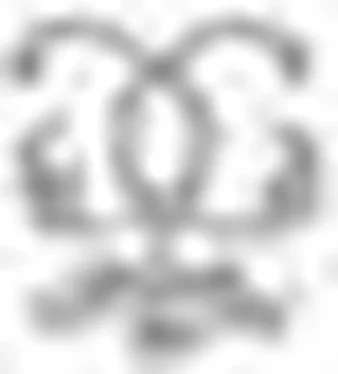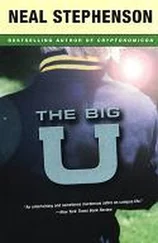Neal Stephenson - The Confusion
Здесь есть возможность читать онлайн «Neal Stephenson - The Confusion» весь текст электронной книги совершенно бесплатно (целиком полную версию без сокращений). В некоторых случаях можно слушать аудио, скачать через торрент в формате fb2 и присутствует краткое содержание. Жанр: Альтернативная история, Фэнтези, на французском языке. Описание произведения, (предисловие) а так же отзывы посетителей доступны на портале библиотеки ЛибКат.
- Название:The Confusion
- Автор:
- Жанр:
- Год:неизвестен
- ISBN:нет данных
- Рейтинг книги:4 / 5. Голосов: 1
-
Избранное:Добавить в избранное
- Отзывы:
-
Ваша оценка:
- 80
- 1
- 2
- 3
- 4
- 5
The Confusion: краткое содержание, описание и аннотация
Предлагаем к чтению аннотацию, описание, краткое содержание или предисловие (зависит от того, что написал сам автор книги «The Confusion»). Если вы не нашли необходимую информацию о книге — напишите в комментариях, мы постараемся отыскать её.
The Confusion — читать онлайн бесплатно полную книгу (весь текст) целиком
Ниже представлен текст книги, разбитый по страницам. Система сохранения места последней прочитанной страницы, позволяет с удобством читать онлайн бесплатно книгу «The Confusion», без необходимости каждый раз заново искать на чём Вы остановились. Поставьте закладку, и сможете в любой момент перейти на страницу, на которой закончили чтение.
Интервал:
Закладка:
This bay was spattered with bony islets, close to shore. Rising from one of them was a squat round fortress that (if he was any judge of matters architectural) had been built at grand expense by Spaniards in desperate fear of their lives. And apparently those fears had been well founded because the top of that fort was all fluttery with green banners bearing silver crescent moons. The fort had three tiers of guns on it (more correctly, the fort was three tiers of guns) and every one of ’em looked, and sounded, like a sixty-pounder, meaning that it flung a cannonball the size of a melon for several miles. This fort was mostly shrouded in powder-smoke, with long bolts of flame jabbing out here and there, giving it the appearance of a thunderstorm that had been rammed and tamped into a barrel.
A white stone breakwater connected this fort to the mainland, which, at first glance, impressed him as a sheer stone wall rising forty or feet from this narrow strip of muddy beach, and crowded with a great many more huge cannons, all being fired just as fast as they could be swabbed out and stuffed with powder.
Beyond the wall rose a white city. Being as he was at the base of a rather high wall, he wouldn’t normally expect to be able to see anything on the opposite side thereof, save the odd cathedral-spire poking out above the battlements. But this city appeared to’ve been laboriously spackled onto the side of a precipitous mountain whose slopes rose directly from the high-tide mark. It looked a bit like a wedge of Paris tilted upwards by some tidy God who wanted to make all the shit finally run out of it. At the apex, where one would look for whatever crowbar or grapple the hypothetical God would’ve used to accomplish this prodigy, was, instead, another fortress-this one of a queer Moorish design, surrounded with its own eight-sided wall that was, inevitably, a-bristle with even more colossal cannons, as well as mortars for heaving bombs out to sea. All of those were being fired, too-as were all of the guns spraying from the several additional fortresses, bastions, and gun-platforms distributed around the city’s walls.
During rare intervals between the crushing thuds of the sixty-pounders, he could hear peppery waves of pistol-and musket-fire rolling around the place, and now (beginning to advert on smaller things) he saw a sort of smoky, crowded lawn growing out of the wall-tops-save instead of grass-blades this lawn was made up of men. Some were dressed in black, and some in white, but most wore more colorful costumes: baggy white trousers belted with brilliantly hued swathes of silk, and brightly embroidered vests-frequently, several such vests nested-and turbans or red cylindrical hats. Most of those who were dressed after this fashion had a pistol in each hand and were firing them into the air or reloading.
The man with the outlandish johnson-swarthy, with wavy black hair in a curious ’do, and a knit skullcap-hitched up his robe, and sloshed out to see if he was all right. For he still had both hands clamped over the sides of his head, partly to stanch the bleeding of the barnacle-gashes, and partly to keep the sound from blowing the top of his skull out to sea. The man peered down and looked into his eyes and moved his lips. The look on his face was serious, but ever so slightly amused.
He reached up and grabbed this fellow’s hand and used it to haul himself up to his feet. Both men’s hands were so heavily callused that they could practically catch musket-balls out of the air, and their knuckles were either bleeding, or else recently scabbed over.
He had stood up because he wanted to see what was the target of all of this shooting, and how it could possibly continue to exist. A fleet of three or four dozen ships was arrayed in the harbor, and (no surprise here) they were all firing their guns. But the ones that looked like Dutch frigates were not firing at the ones that looked like heathen galleys, nor vice versa, and none of them seemed to be firing at the vertiginous white city. All of the ships, even the ones that were of European design, flew crescent-moon banners.
Finally his eye settled on one ship, which was unique in that she was the only vessel or building in sight that was not vomiting smoke and spitting flame in all directions. This one was a galley, very much in the Mohametan style, but extraordinarily fine, at least to anyone who found whorish decoration appealing-her non-functioning bits were a mess of gold-leafed gewgaws that glowed in the sun, even through drifting banks of powder-smoke. Her lateen sail had been struck and she was proceeding under oar-power, but in a stately manner. He found himself examining the movements of her oars just a bit too closely, and admiring the uniformity of the strokes more than was healthy for a Vagabond in his right mind: leading to the questions, was he still a Vagabond, and was he in his right mind? He recalled-dimly-that he had lived in Christendom during one part of his sorry life, and had been well advanced in the losing of his mind to the French Pox-but he seemed all right now, save that he couldn’t recall where he was, how he’d gotten there, or anything at all of recent events. And the very meaning of that word “recent” was called into question by the length of his beard, which reached down to his stomach.
The intensity of the cannonade waxed, if such a thing were possible, and reached a climax as the gold-plated galley drew up alongside a stone pier that projected into the harbor not awfully far away. Then, all of a sudden, the noise stopped.
“What in Christ’s name-” he began, but the rest of his utterance was drowned out by a sound that-compared to hundreds of cannons firing at once-made up in shrillness what it lacked in volume. Listening to it in amazement, he began to detect certain resemblances between it and musick. Rhythm was there, albeit of an overly complicated and rambunctious nature, and melody, too, though it was not cast in any civilized mode, but had the wild keening intonations of Irish tunes-and then some. Harmony, sweetness of tone, and other qualities normally associated with musick, were absent. For these Turks or Moors or whatever they were had no interest in flutes, viols, theorbos, nor anything else that made a pleasing sound. Their orchestra consisted of drums, cymbals, and a hideous swarm of giant war-oboes hammered out of brass and fitted with screeching, buzzing reeds, the result sounding like nothing so much as an armed assault on a belfry infested with starlings.
“I owe an ’umble apology to every Scotsman I’ve ever met,” he shouted, “for it isn’t true, after all, that their music is the most despicable in the world.” His companion cocked an ear in his direction but heard little, and understood less.
Now, essentially all of the city was protected within that wall, which shamed any in Christendom. But on this side of it there were various breakwaters, piers, gun-emplacements, and traces of mucky beach, and everything that was capable of bearing a man’s weight, or a horse’s, was doing so-covered by ranks of men in divers magnificent and outlandish uniforms. In other words, all the makings of a parade were laid out here. And indeed, after a lot of bellowing back and forth and playing of hellish musicks and firing of yet more guns, various important Turks (he was growingly certain that these were Turks) began to ride or march through a large gate let into the mighty Wall, disappearing into the city. First went an impossibly magnificent and fearsome warrior on a black charger, flanked by a couple of kettledrum-pounding “musicians.” The beat of their drums filled him with an unaccountable craving to reach out and grope for an oar.
“That, Jack, is the Agha of the Janissaries,” said the circumcised one.
This handle of “Jack” struck him as familiar and, in any case, serviceable. So Jack he was.
Читать дальшеИнтервал:
Закладка:
Похожие книги на «The Confusion»
Представляем Вашему вниманию похожие книги на «The Confusion» списком для выбора. Мы отобрали схожую по названию и смыслу литературу в надежде предоставить читателям больше вариантов отыскать новые, интересные, ещё непрочитанные произведения.
Обсуждение, отзывы о книге «The Confusion» и просто собственные мнения читателей. Оставьте ваши комментарии, напишите, что Вы думаете о произведении, его смысле или главных героях. Укажите что конкретно понравилось, а что нет, и почему Вы так считаете.






